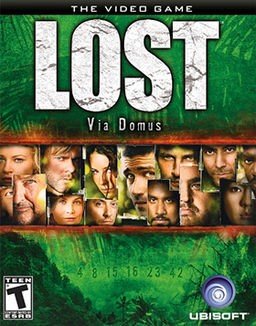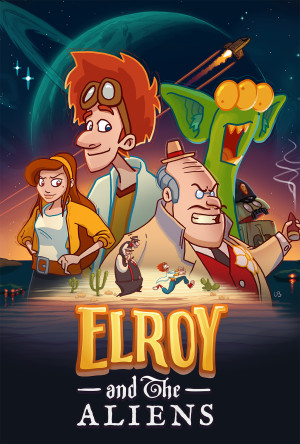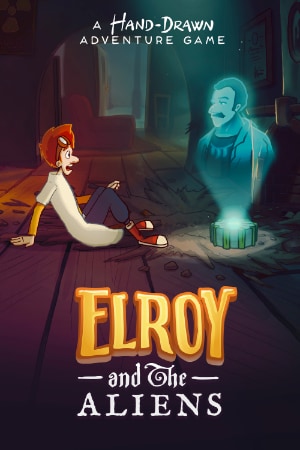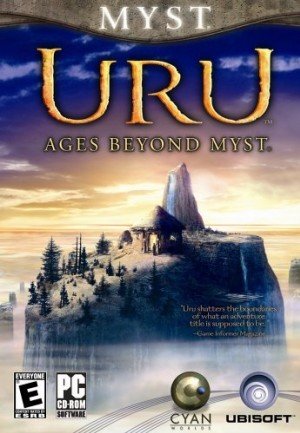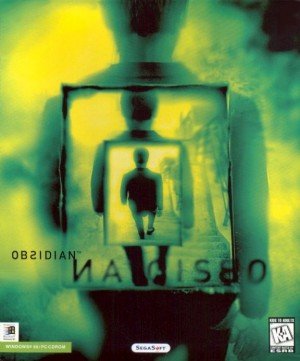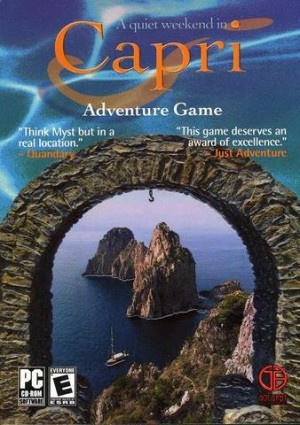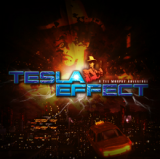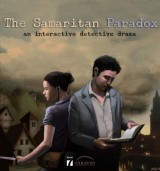Review for Lost: Via Domus page 2
Throughout the history of video games, titles licensed from movie or TV properties have typically been rush jobs, meant to capitalize on the property’s success while it’s still hot and make a quick buck in the process. However, adventure games have usually fared better than most, with some great games based on Ripley’s Believe It or Not!, Sam & Max, and even Beavis & Butthead. So is Lost: Via Domus the next Superman 64 or the next Indiana Jones and the Fate of Atlantis? It all depends on your perspective. This is a game for Lost devotees first and foremost, and those of you who don’t know the Pearl Station from the Swan Station won’t find any enlightenment here.
Before you get your hopes up, Lost fans, you won’t find any enlightenment either. Lost: Via Domus offers no answers for the many mysteries that plague you, and even the few pleasantly baffling plot twists in the game are nothing more than that, as the producers of the show have said the game’s story isn’t canon. What you will find is a virtual tour of the island’s many unique features, from the Black Rock slave ship to the Others’ submarine. If you carefully explore your environment, you’ll even find smaller touches like Walt’s Spanish-language comic book discarded on the beach and the cursed Valenzetti numbers hidden in the environment itself.
For those unfamiliar with the series but still tempted by the game, it would be impossible to give a brief description to what is maybe the most complicated (and some would say, convoluted) show on television, but I’ll try anyway. A plane flying from Sydney to Los Angeles goes off course and crashes on an uncharted island, with several dozen people surviving. Soon they realize the island is not your average run-of-the-mill Pacific paradise as it has polar bears, monsters made of black smoke, the ability to cure you of any illness (if it wants to), several half-hidden experimental laboratories run by the mysterious Dharma Initiative, and a group of mysterious “Others” whose hobbies include kidnapping and being cryptic. The show follows a core group of the castaways as they seek answers and/or a way back home, while the rest of the survivors are basically cannon fodder for the island’s many perils.
As opposed to taking control of one of the familiar protagonists from the show, in Via Domus you play as an original character named—oh, but that would be telling. You find yourself waking up on the jungle floor after the plane crash with total amnesia. The plot from there progresses in a similar fashion to the Paulo and Nikki episode from the series, where you see the events of the first three seasons through the eyes of a new character who’d been in the background all along. Your quest is to find out who you are and why someone on the island wants to kill you. The game is broken up into seven episodes, each with a flashback segment where you learn a little bit more about your life and what you did to earn a place on Lost island. If you enjoy playing a morally ambiguous character, you’ll welcome some of the darker revelations. While the amnesia angle is a good way to make the player an active participant in the character’s life story, in a medium rife with similar tales of forgetfulness, the cliché can feel a little played out.
Lost: Via Domus experiences an identity crisis of its own, as an adventure game in action game clothing. While your character does acquire a gun early on, and is even capable of aiming it in an over-the-shoulder perspective just like a real action hero, the only times you actually use the gun are in the service of puzzle-solving. In fact, the number of electrical panel fuse puzzles outnumbers the total bullets fired by 2-to-1. Absurdly, the opportunity exists to acquire almost 100 bullets when less than a half-dozen will suffice, causing you to keep waiting for the grand shoot-out around the next corner that never comes. There are also a couple chase sequences and several times when you’ll have to hide from the smoke monster, but the difficulty level is so low that even the most reflex-averse among you will skate through with ease. Oh, and occasionally mysterious people you can’t see start to shoot at you for some reason, but no matter how leisurely I wandered through the jungle, they never even grazed me. If you do manage to die somehow, you automatically warp back to the last autosave, which is usually no more than five minutes back.
The inability of the bad guys to kill even a slowly moving target is emblematic of Via Domus’ overall simplicity. With an abundance of people willing to suggest your next move, including the protagonist himself, and even a notebook that automatically keeps track of your objectives, the chances of you getting stuck are slim. The only puzzle I encountered that seemed really devious was also completely optional, with the reward being another wink to the TV series with no serious in-game consequences. For the most part, you’ll travel from place to place in a linear fashion, talking to castaways, picking up items you can use for trade, and triggering new cutscenes. Wandering off the beaten path occasionally yields neat stuff you can look at, but just as often leads to the game suggesting you retrace your steps.
Even when you keep your eyes focused exclusively on the next objective, it’s hard not to feel like you’re constantly treading over the same ground. There are essentially three puzzles in the game that repeat ad nauseum. There are fuse puzzles, requiring you to get a certain amount of voltage from one end of a panel to the other. There are “IQ Test” puzzles, where you have to determine the next item in a sequence like “1 – 2 – 4 – 8 – 16 –” (that’s not one of the tests in the game, but they are that simple). And finally there are the photo puzzles that begin each flashback, where you start with a torn-up picture, then watch an eternally-looping memory while trying to identify the moment the picture represents. If the puzzles were harder to solve, it might be more annoying, but given that you can breeze through most of them within a few minutes, it doesn’t slow things down that much.
What could slow you down if you invest too much importance in it is the island’s barter system. From bottles of water to coconuts to the extremely valuable Apollo Bars, your inventory will constantly be full of trivial items saved for trading with the other castaways. You trade for light sources to help you through the game’s three pitch black areas, you trade for a gun and bullets (but as I said earlier, you don’t need the extra bullets), and you trade for more fuses (which you also don’t need, as they’re in abundance). Once you buy a lantern, a couple cans of oil, and the gun, you’re completely set, though you’ll continue to find way more tradeable items than you could possibly want. Honestly, you could even get by without the lantern, but it undeniably makes things a lot easier. Either way, once you’ve traded for the above items, you can feel free to stop picking up every can of Dharma-brand beer you find—you won’t use them.
The free-roaming controls naturally vary according to which system you play on, as Lost was released for PC, PlayStation 3, and Xbox 360. The console versions are simple and intuitive to anyone who’s played other third-person “action”-style games, using the left analog stick to move and the right stick to look around. The PC version handles just as smoothly using a standard mouse and keyboard combination, though you'll want to reconfigure the default settings for some of the secondary actions. Regardless of platform, however, navigating your character around the full 3D environments island is a breeze.
Whether a matter of budget, time, or willingness on behalf of the talent, very few of the actors from the TV series took part in this little side project, with the majority of the characters being voiced by sound-alikes of varying quality. One wishes the developers had determined up front which actors would be available for voice work and written the storyline around them, as those few who actually participated—including Claire, Sun, Desmond, and Ben—only have 3 to 5 minutes of dialogue each. Meanwhile, characters like Locke, who sounds like nothing so much as a buddy who thinks he does a great Locke impression and you don’t want to hurt his feelings by telling him otherwise, and Kate, who reads lines even flatter than the real actress, dominate the game’s “screen time” as much as they do the show’s.
You won’t find as many flaws in the rest of the game’s presentation. The graphics for each character model are done well (except for a super creepy Hurley) and make everyone you speak with easily recognizable. The settings look like they were carefully copied over from the TV show, including a fully-equipped hatch and the various huts and lean-tos occupying the beach (that increase in sophistication as the weeks pass). The screen even displays little prompts any time a particular button is required to look at or interact with an object. The sounds and music are pitch-perfect, from the smoke monster’s theme to the special sound at the end of each episode when you’ve just gotten some crazy revelation and it cuts to the black-and-white Lost logo.
In a title like this, which is more fan service than anything else, it’s those little touches that make all the difference. Each episode even begins with a neat “Previously on Lost” montage where it shows relevant clips of the game up to that point. If it weren’t for all the cool references to the series and the Lost-worthy storyline, it would be hard to justify even spending the 4 to 6 hours it takes to stroll through the easy, repetitive puzzles and mostly non-interactive scenery. If you’re a regular viewer of the show, and you can find it at a decent price, I can easily recommend booking a seat on Oceanic Flight 815. For everyone else, however, even this brief visit to Lost island just might seem more like an eternity in purgatory.


